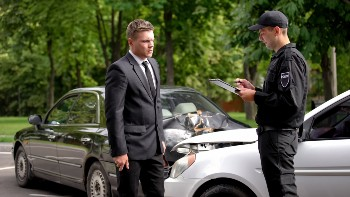Introduction:
Car accidents can be devastating, resulting in injuries, property damage, and emotional distress. When such an incident occurs, it’s crucial to gather evidence to support your case, whether you are the injured party seeking compensation or defending yourself against false claims. Collecting and preserving evidence is essential for establishing liability and ensuring a fair settlement. In this blog post, we will explore various methods and techniques to gather evidence effectively in a car accident case.
- Immediate Steps:
After a car accident, your first priority should always be ensuring the safety and well-being of yourself and others involved. Once everyone is safe, take the following steps to gather immediate evidence:
a) Contact authorities: Call the police to report the accident and have an official record created.
b) Document the scene: Take photographs or videos of the accident scene, including the vehicles involved, the position of the vehicles, any skid marks or debris, and the surrounding environment.
c) Gather information: Collect the contact details, license plate numbers, insurance information, and driver’s license details of all parties involved, as well as any witnesses present.
- Eyewitness Statements:
Eyewitnesses can play a crucial role in establishing the sequence of events leading up to the accident. When gathering eyewitness statements:
a) Approach witnesses calmly: Politely ask witnesses if they saw the accident occur and if they would be willing to provide a statement.
b) Document their statements: Record their names, phone numbers, and addresses, and ask them to describe what they saw. If possible, take notes or record their statements using your smartphone.
c) Obtain written statements: If a witness is willing, ask them to provide a written statement detailing their observations. Signatures and dates should be included.
- Police Reports:
Obtaining a copy of the police report is vital as it often contains valuable information regarding the accident. To acquire a police report:
a) Request a copy: Contact the law enforcement agency that responded to the accident and follow their procedure for obtaining a copy of the report. Be prepared to provide relevant information such as the date, time, and location of the accident, as well as the parties involved.
b) Review the report: Carefully review the details mentioned in the report, including the officer’s observations, diagrams, and any citations issued. If you notice any errors or discrepancies, inform the police department promptly.
- Medical Records:
If you sustained injuries in the car accident, gathering medical records is essential for proving the extent and impact of your injuries. Here’s what you should do:
a) Seek medical attention: Visit a healthcare professional immediately after the accident, even if your injuries seem minor. A comprehensive medical examination will ensure that all injuries are diagnosed and treated promptly.
b) Document medical treatment: Keep a record of all medical treatments received, including hospital visits, diagnostic tests, prescribed medications, and therapy sessions. These records will serve as evidence of your injuries and the associated costs.
c) Obtain medical reports: Request copies of your medical reports, which should include detailed information about your injuries, treatment plans, and prognosis. These reports will be crucial for assessing the long-term impact of the accident.
- Physical Evidence:
Physical evidence can be invaluable in supporting your car accident case. Consider the following:
a) Preserve vehicle damage: Take photographs of the damage to all vehicles involved in the accident. If possible, keep the damaged parts or objects as evidence.
b) Preserve personal property: If any personal belongings were damaged during the accident, such as a smartphone or laptop, retain them as evidence.
c) Obtain expert analysis: In complex cases, it may be necessary to hire accident reconstruction experts or automotive engineers to assess the accident scene, review the vehicles involved, and provide expert testimony

